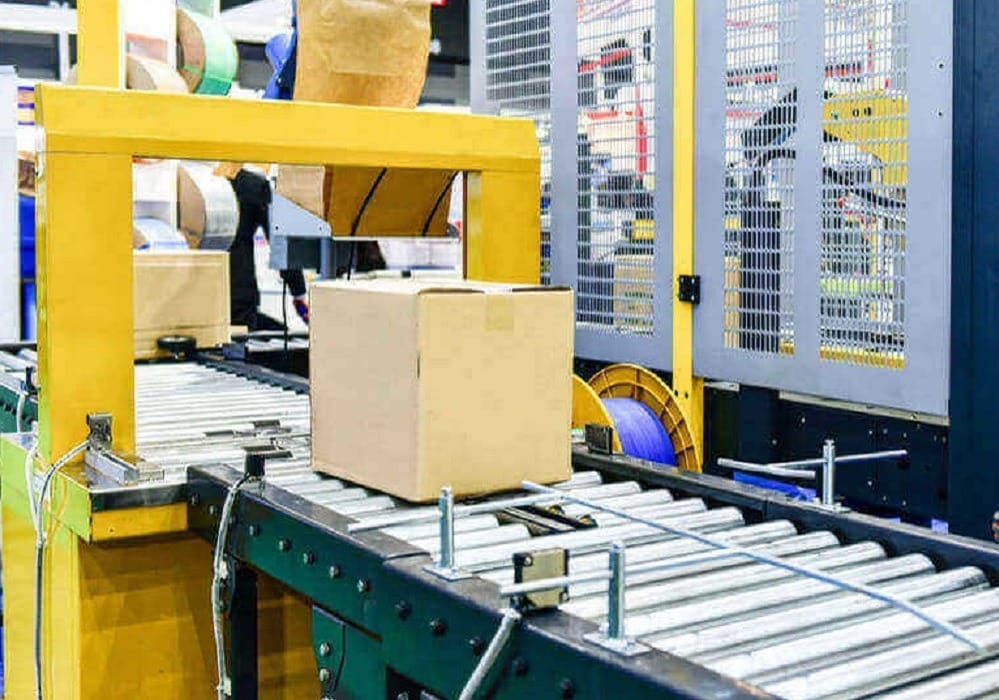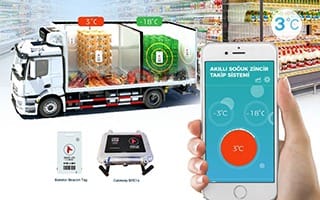INTELLI COUNT | RFID FAST COUNT SYSTEM
Count Thousands of Products in Seconds!
Reset undercounting or overcounting due to human error with this automation and save time.
RFID FAST COUNT
GENERAL FEATURES OF THE SYSTEM
RFID (Radio Frequency Identification) fast count systems are a type of inventory management technology that uses RFID tags and readers to quickly and accurately count and track items in a warehouse or retail environment.
The system works by attaching RFID tags to each item in the inventory. These tags contain a unique identification number that can be read by an RFID reader. When an RFID reader passes over a group of items, it can quickly and accurately count the number of items and identify missing or misplaced ones.
It ensures that sales can be made without interruption during counting.
Counting can be done with less personnel cost.
You can easily perform your counts without the need to close your store.
Provides instant detection of missing products on the shelves
Store stock counts become easier.
How does the RFID FAST COUNT SYSTEM work?
RFID Tags: The first step is to prepare RFID tags that are placed on or inside objects.
RFID Readers: Special reader devices are used to read and write the data of RFID tags.
RFID Antennas: Identifies RFID tags and transmits the information of the tags belonging to the system to the reader.
Data Transfer and Processing: RFID tags receive radio frequency signals sent by the reader device and send back data processed by the microchips inside them. The reader can usually transmit the collected data to a central database. This database stores the location and status of the tags and other relevant information.
Advantages of the System
Real Time Monitoring
The system can track the real-time location and status of objects.
Accurate Counting
It performs accurate and precise counting of thousands of objects and verifies the detection of human errors.
Fast Count
It greatly speeds up processes such as inventory counting and reduces the risk of human error.
Time Saving
Quickly performs counting and control processes.
Data Analytics
Large amounts of data can be quickly collected and analyzed to improve business processes.
Areas of Use
RFID fast counting system is generally used in all areas where RFID technology is used. It can be used in markets, hotels, offices, factories, libraries, Inventory Management, Logistics and Transportation, Healthcare, Access Control and Security, Animal Tracking and Tracing, Manufacturing Processes, Automotive Industry, Textile and Fashion Industry, Educational Institutions, Sports Events and Entertainment Industry.
Sources
OTHER SOLUTIONS
RTLS SMART HOSPITAL SYSTEM
Real Time Personnel Monitoring System
Real Time Patient Monitoring System
Smart Device and Inventory Tracking Management
Mother Baby Matching and Tracking System with Smart Tracking
Patient Food Tray Tracking System
Real Time Hospital Textile Products Tracking System
Other Content
Keep following us to be informed about all developments in the field of RFID and IoT. New information and new solutions coming soon…
Mold Management System and Tracking with RFID
Mold Management System with RFID and Molds used in the production manufacturing industry are among the critical...
Why Should RFID Be Used in Cold Chain Transportation?
In Cold Chain Transportation, RFID technology plays a crucial role in maintaining appropriate temperature conditions,...
RFID Smart Production Solutions
In the fast-paced world of manufacturing, productivity is crucial. Every second counts, and every process must be...





